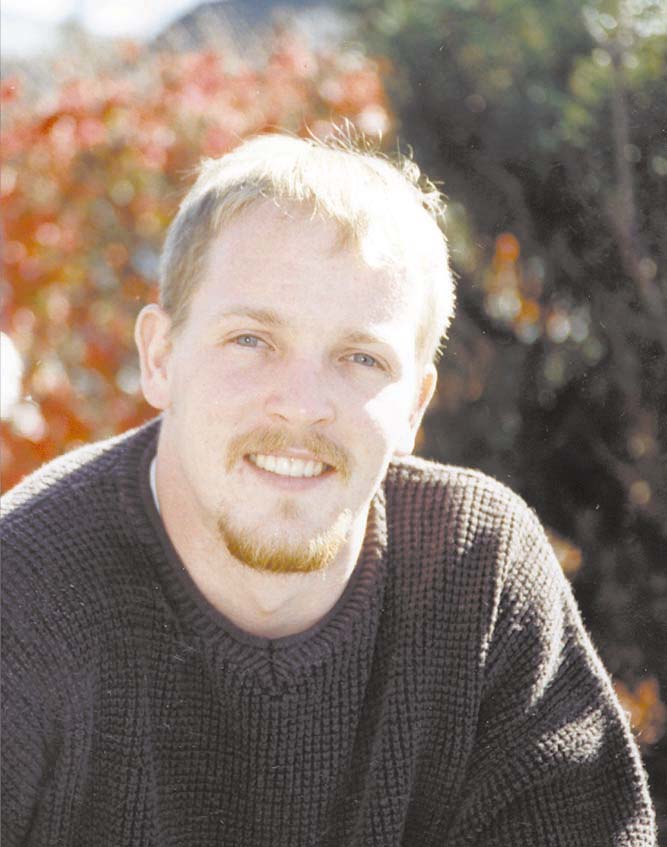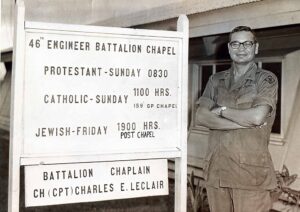
HANNIBAL, Mo. (BP)–Ryan Black spent most of his teenage years feeling like an outsider. At the age of 12, Ryan, now a junior psychology major at Hannibal-LaGrange College in Hannibal, Mo., began having feelings he classifies as “homosexual tendencies.”
Eventually, he acted on those desires on a couple of occasions during his high school years, recalling those years as difficult because he had low self-esteem, and he didn’t feel like he fit in with the other guys.
He didn’t admit those feelings to any of his high school friends or family, for fear he would be rejected. “There was no way I was going to let this out,” he recounted. “I was really good at keeping things inside. I guess my biggest fear was that I wouldn’t be accepted.”
While Ryan was in high school, he tried to find acceptance through sports by participating in football, wrestling and track, but nothing seemed to fill the emptiness in his life. He eventually decided he would always feel different.
“Since I didn’t know Christ, and I wasn’t raised in a Christian home, I pretty much accepted that this was the way things would be.”
Some of those feelings, Ryan said, were triggered by his strained relationship with his father. “Looking back now, I know he loves me, but when I was growing up it seemed like mostly a material love, where he took care of my physical needs like having the right car or clothes.”
Ryan sought out love in other places. It wouldn’t be until the summer after his senior year of high school that he discovered what love was really about.
After graduating from high school, Ryan attended a Christian youth camp with a group of friends from First Baptist Church of O’Fallon, Mo. It was there he realized he was spiritually lost, and he accepted Christ into his life. The next day, while listening to a message focusing on “sin in people’s lives,” he realized he had to abandon his homosexual desires.
“There it was right in the Bible, talking about how homosexuals ‘will not inherit the kingdom of God’ (1 Corinthians 6: 9). After I saw it, I wandered around for a while just crying. I was having one of the greatest and at the same time one of the worst experiences of my life.”
Letting go of what he had accepted as his “identity” was not easy. “There was a time when I didn’t think there was any way these feelings were going to change.”
For a while, Ryan thought he would have to live a celibate lifestyle with homosexual feelings bottled up inside. He eventually slipped into depression and contemplated suicide.
“It got to the point where I didn’t want to feel anymore.”
Ryan realized he needed help. While attending a Promise Keepers convention in Dallas in 1995, he found it when he spotted a booth with a banner “Healing for Homosexuals.”
While walking by the booth, he snatched a pamphlet on the edge of the table and kept walking. “I was so afraid someone was going to see me,” he recalled.
Ryan later read the pamphlet, which talked about an organization called Exodus International, a nonprofit, nondenominational organization that has helped men and women find their way out of homosexuality since 1976.
It would be months before Ryan worked up enough courage to call the organization. After he did, he began attending Exodus meetings near his hometown of Lake St. Louis.
At first, he said, he was a little nervous discussing his personal life with a stranger. But by attending weekly meetings, he was able to identify his role as a Christian man.
“The sessions focused on what it means to be a man of God rather than what society defines as a true man,” he said.
Being able to open up and share his feelings with others was another important part of the healing process. “The accountability is so important; it’s something you have to have to get through it,” Ryan said. “Secrets are the most damaging things in a person’s life.”
Through Exodus International, Ryan has been able to find an identity in himself he never knew was there. He hopes one day to find a wife and have children. “I want to be a daddy,” he said.
The organization also helped Ryan develop a confidence in sharing his testimony with people in his church. He hopes his testimony will help others who are struggling with similar issues.
“They were really supportive,” Ryan said. His pastor, Gary Taylor, recalled the day Ryan shared his testimony with him.
“I was naturally a little surprised, but as a preacher, you always want to show concern, interest and love,” Taylor said. “It is magnificent to see what the grace of God can do in a person’s life, and Ryan’s testimony is evidence of that.”
Only recently did Ryan share his past struggles with his parents for the first time. The conversation, Ryan admitted, was long and was uncomfortable at times, but it was honest and from the heart.
“I felt pretty good about it,” he said. “I think they are just more concerned about me and what all this means for my life.”
After Ryan graduates from college, he plans to seek a full-time position in counseling with Exodus. He believes there is a growing need for Christians who can counsel in this area.
“The church needs to be willing to address it — because it isn’t going away.”














